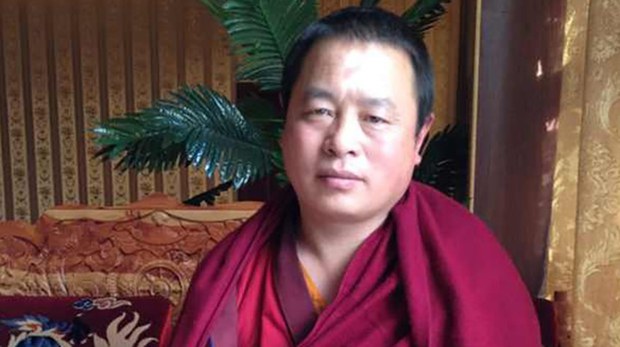The whereabouts of Lobsang Thabkhey, the former librarian of Kirti Monastery, remain unknown, two sources told RFA.
By Pelbar for RFA Tibetan

A Tibetan Buddhist monk was arrested by Chinese police in June 2023 on charges of republishing books from the exiled Tibetan community and for contacting people outside the region, Radio Free Asia has learned.
The whereabouts of Lobsang Thabkhey, 54, who served as librarian of Kirti Monastery in Ngaba county in southwest China’s Sichuan province, remain unknown, two sources inside Tibet said on condition of anonymity for safety reasons.
Thabkhey, had been summoned several times by Chinese police before his arrest for questioning, one of the sources told RFA.
“The primary charge that was leveled against him was that he had published and disseminated books that had origins in the Tibetan exiled community while he was in charge of the library at Kirti monastery and he communicated with people outside Tibet,” another source said.
RFA contacted the Ngaba police station, but an official there said he had no idea who Thabkey was.
Thabkhey hails from Ngaba’s Meruma township, which has been the scene of many protests and pro-Tibet political activities since 2008.
Following the 2008 anniversary of the 1959 Tibetan Uprising – which saw as many as 400 Tibetans killed as Chinese authorities quelled major protests that broke out inside Tibet – there have been more than 150 Tibetans who have self-immolated to protest Chinese repression in Tibet.
Chinese authorities consider it illegal for Tibetans inside Tibet to contact people outside the region and engage with the exiled Tibetan community or the Tibetan spiritual leader, the Dalai Lama, who China considers a “separatist.”
However, the Dalai Lama and the Tibetan government-in-exile advocate a “Middle Way” approach that calls for genuine autonomy for the Tibetan people within the scope of the Chinese constitution that enables the preservation of Tibetan cultural, linguistic, and religious identity.
Translated by Tenzin Pema. Edited by Eugene Whong and Malcolm Foster.
Source: Copyright © 1998-2016, RFA. Used with the permission of Radio Free Asia, 2025 M St. NW, Suite 300, Washington DC 20036. https://www.rfa.org.












